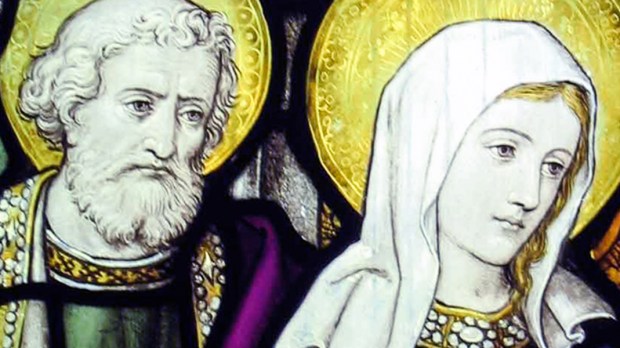Holiness is not possible without humility, which explains why sanctity is often so difficult.
When we are not humble, we are not as open to the Holy Spirit; we are not as in touch with purity; we put ourselves from the healing that is God.
Many of the blockages and stumbling blocks we encounter — that mystify us — are caused by this lack.
 “When two humble people are associated together, they will always get along well with each other,” wrote the famed monk Thomas À. Kempis, in a book only now translated into English, Humility and the Elevation of the Mind to God. “But when two proud people are associated together, they will compete with each other and dissensions will inevitably arise.
“When two humble people are associated together, they will always get along well with each other,” wrote the famed monk Thomas À. Kempis, in a book only now translated into English, Humility and the Elevation of the Mind to God. “But when two proud people are associated together, they will compete with each other and dissensions will inevitably arise.
“It is a very useful practice to train oneself in humility. It is wise to fear the unseen judgment of God and to think often about one’s final end. It is characteristic of a truly humble person not to be greatly affected by human praise. For the one who is intent upon heavenly glory will not consider earthly glory as something of any great consequence.”
Re-read that last line in light our a culture based on politics, wealth, and celebrity — all meaningless to Heaven, and often a great hindrance in getting there.
So many “important” people will not be so august on the other side.
Eyes will be opened.
Amazements will present themselves at every turn.
“The person who seeks to be praised and glorified during this life will never be firmly established in the truth,” wrote Kempis, best known for his classic, The Imitation of Christ.
“Such a person, who is intent upon human praise and approval, cannot genuinely love God above all else, or will — at best — love God with only a divided heart.
“Those in positions of authority who remain humble are particularly dear to God and will receive
In other words: woe to those who treat Catholicism as politics, social, or intellectual endeavor. Woe to those who justify disobedience.
Woe to those who talk more than they pray.
“The devout person loves and cultivates times of solitude so that he may contemplate God more freely and intently,” said Kempis.
“The monk who is silent and given to constant prayer shall walk with God and penetrate the mysteries of Heaven. The one who does good works and endures injustices patiently will gather wonderful fruit for himself in the future.
“But the person who is occupied with considering subtle and sophisticated questions and problems and so neglects the virtue of humility, digs a pit for himself into which he will surely fall.”
[resources (highly recommended): Humility and the Elevation of the Mind to God]


